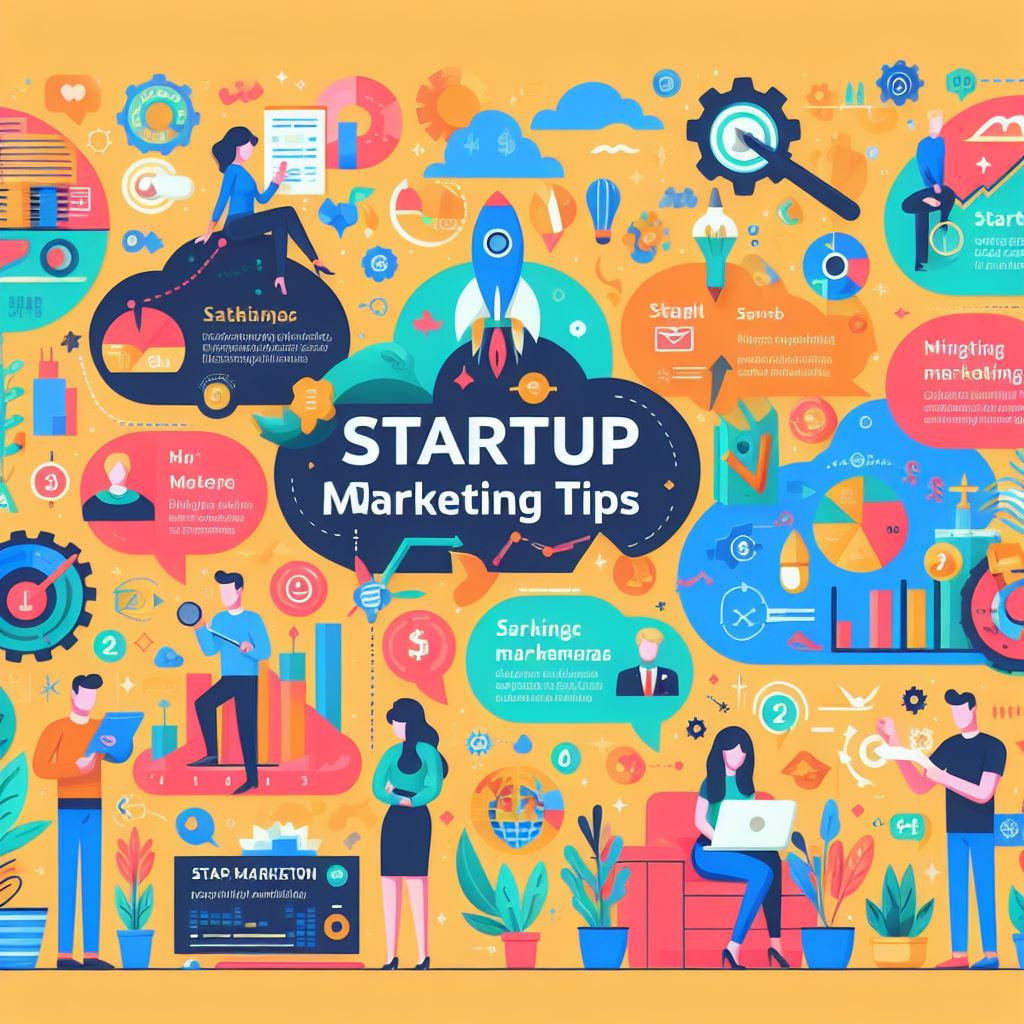In today’s competitive landscape, harnessing the right small business marketing ideas can be the difference between thriving and merely surviving. Marketing is not just about pushing products or services; it’s about creating value and building lasting relationships with your customers. For small businesses, this can seem daunting, especially with limited resources. However, the right strategies can provide significant returns without breaking the bank.
From leveraging the power of social media to exploring the potential of influencer partnerships, there are numerous ways to get your business noticed. Each method has its unique advantages and can be tailored to fit your specific needs and goals. The key is to understand your target audience and craft a message that resonates with them.
If you’re looking to propel your business forward, these examples of small business marketing ideas can serve as a guide. Whether you’re a startup or a growing enterprise, implementing these strategies can help you build a robust marketing framework.
Ready to take your marketing efforts to the next level? Contact Aligning for Success for a free digital marketing consultation. Let’s turn your vision into reality and set your business up for success.
Utilizing Social Media Platforms

Social media platforms have revolutionized the way businesses connect with their audience. Utilizing platforms like Facebook, Instagram, Twitter, and LinkedIn can significantly enhance your brand’s visibility and engagement. Each platform offers unique features and caters to different demographics, making it essential to tailor your strategy accordingly.
For instance, Facebook is ideal for community building and running targeted ads due to its extensive user data. On the other hand, Instagram is perfect for visually-driven content, offering features like Stories and IGTV to keep your audience engaged. Twitter is great for real-time updates and engaging in conversations, while LinkedIn is the go-to platform for B2B marketing and professional networking.
To make the most out of social media, consistent posting and interaction are key. Share valuable content that resonates with your audience, use hashtags to increase reach, and engage with your followers through comments and direct messages. Additionally, consider leveraging paid advertising options to target specific demographics and interests.
Another effective strategy is collaborating with influencers who align with your brand values. Influencers can amplify your message and introduce your products or services to a broader audience. By combining organic and paid strategies, you can maximize your presence on social media and drive meaningful engagement.
Email Marketing Campaign Strategies

Email marketing remains one of the most effective ways to reach and engage your audience. With a well-crafted strategy, you can nurture leads, convert prospects into customers, and retain existing customers. The key to a successful email marketing campaign lies in personalization, segmentation, and delivering valuable content.
Start by building a quality email list. Ensure that your subscribers have opted in to receive communications from you, which can be achieved through sign-up forms on your website, social media channels, or during events. Once you have a list, segment it based on various criteria such as demographics, past purchasing behavior, and engagement levels. This allows you to tailor your messages to different segments, making your emails more relevant and effective.
Personalization goes beyond just addressing your subscribers by their first names. Use data to provide content that is specifically relevant to their needs and interests. For example, if a customer has previously purchased a product from you, suggest complementary products or offer special discounts on their next purchase.
Content is king in email marketing. Provide your subscribers with valuable information, whether it’s educational content, industry news, or special offers. A mix of content types—such as newsletters, promotional emails, and transactional emails—can keep your audience engaged. Don’t forget to include clear and compelling calls to action (CTAs) that guide your readers on what to do next.
Finally, analyze the performance of your email campaigns. Metrics such as open rates, click-through rates, and conversion rates can provide insights into what’s working and what needs improvement. Use this data to refine your strategy for even better results.
Content Marketing for Small Businesses

Content marketing is an essential strategy for small businesses looking to establish authority, build trust, and attract a loyal customer base. By creating and distributing valuable, relevant, and consistent content, you can engage your target audience and drive profitable customer action.
Begin by understanding your audience. What are their pain points, interests, and questions? Conducting market research and developing buyer personas can help you tailor your content to address these needs effectively. This ensures that your content resonates with your audience and keeps them coming back for more.
Diversify your content types to keep your audience engaged. Blogs are a great starting point and can improve your website’s SEO by targeting specific keywords related to your industry. However, don’t stop there. Explore other formats such as videos, infographics, podcasts, and eBooks. Each format has its own strengths and can appeal to different segments of your audience.
Consistency is key in content marketing. Develop a content calendar to plan and schedule your content in advance. This helps you maintain a steady flow of content and ensures that you don’t miss any important dates or opportunities. Regularly posting high-quality content also signals to search engines that your website is active and up-to-date, which can improve your search rankings.
Promote your content across various channels to maximize its reach. Share your blog posts on social media, send newsletters to your email subscribers, and engage with your audience in online communities related to your industry. The more you distribute your content, the more visibility and engagement you’ll achieve.
Lastly, measure the effectiveness of your content marketing efforts. Use analytics tools to track metrics such as website traffic, social media engagement, and conversion rates. This data will help you understand what types of content perform best and allow you to refine your strategy for better results.
Leveraging Influencer Partnerships

For small businesses, leveraging influencer partnerships can be a game-changer in terms of brand visibility and credibility. Influencers, with their established follower base and trust, can help you reach a larger audience more effectively than traditional advertising methods.
Start by identifying the right influencers for your brand. Look for individuals who align with your brand values and have a follower base that matches your target audience. Tools like BuzzSumo and Followerwonk can help you discover influencers in your niche. It’s not just about the number of followers; focus on engagement rates and the authenticity of their interactions.
Once you’ve shortlisted potential influencers, engage with them genuinely before pitching a partnership. Like, comment, and share their content to show that you value their work. When reaching out, personalize your message and clearly explain how a partnership would be mutually beneficial. Highlight what unique value your product or service can offer to their audience.
There are various ways to collaborate with influencers. Sponsored posts are the most common, where the influencer creates content around your product or service. However, consider other creative options like giveaways, takeovers, or even co-creating a product line. These methods can generate more buzz and engagement.
Transparency is crucial in influencer partnerships. Ensure that the influencer discloses the partnership according to the guidelines set by the Federal Trade Commission (FTC). This builds trust with their followers and maintains the integrity of your brand.
Finally, track the performance of your influencer marketing campaigns. Use metrics such as engagement rates, website traffic, and conversions to evaluate the effectiveness of the partnership. This data will help you refine your strategy and choose the best influencers for future collaborations.
Local SEO and Online Listings
In today’s digital age, optimizing your online presence for local searches is crucial for small business success. Local SEO (Search Engine Optimization) helps your business rank higher in search results when potential customers are looking for services or products in your area. This can significantly boost your visibility and drive more foot traffic to your physical location.
Start by claiming and optimizing your Google My Business listing. Ensure that all information, such as your business name, address, phone number, and operating hours, is accurate and up-to-date. Adding high-quality photos and encouraging satisfied customers to leave positive reviews can also enhance your listing’s appeal.
Consistency is key in local SEO. Make sure your business information is consistent across all online directories and social media platforms. Use tools like Yext or Moz Local to manage and update your listings efficiently. This consistency helps search engines verify the legitimacy of your business and improves your local ranking.
Incorporating local keywords into your website content is another effective strategy. Use terms that potential customers might search for, such as “best coffee shop in [your city]” or “affordable plumbing services in [your town].” Creating locally-focused blog posts and landing pages can also help attract local traffic.
Don’t forget about mobile optimization. Many local searches are conducted on mobile devices, so ensuring that your website is mobile-friendly can enhance user experience and improve your local SEO performance. Fast loading times and easy navigation are essential components of a mobile-optimized site.
Finally, engage with your online community. Respond to reviews, answer questions, and participate in local forums or social media groups related to your industry. This not only builds a positive reputation but also signals to search engines that your business is active and engaged.
Contact Aligning for Success for a free digital marketing consultation and learn how to optimize your local SEO strategy effectively!






